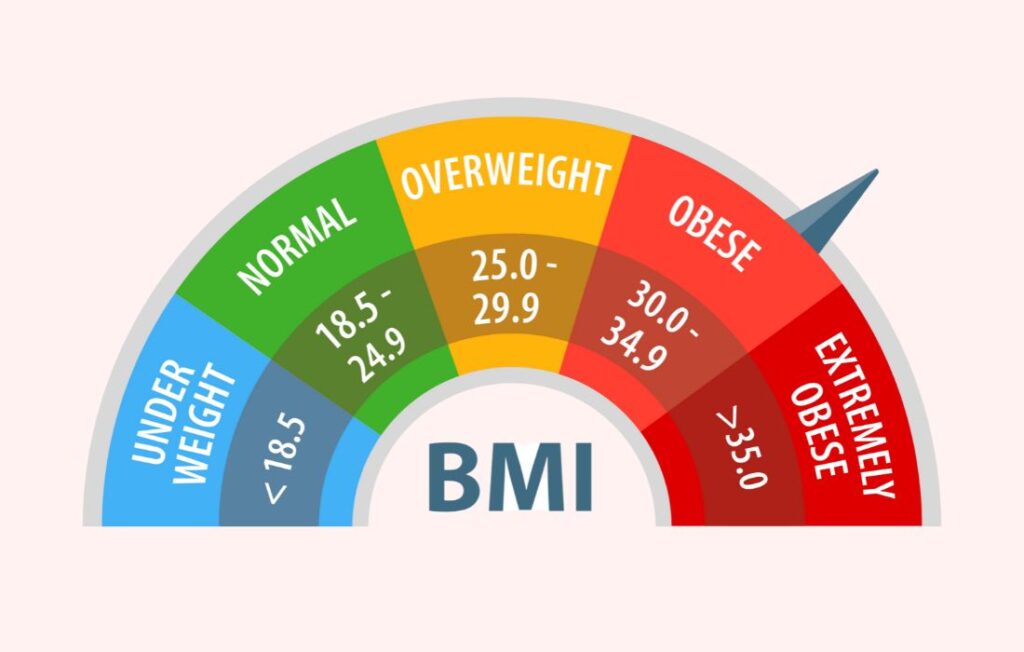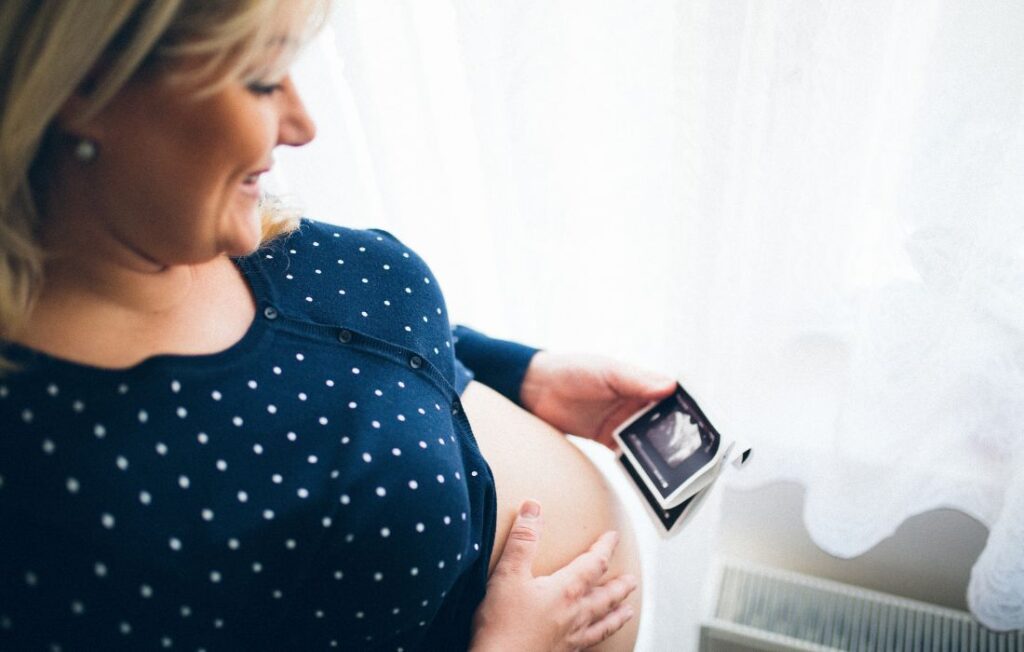You may have found yourself wondering what is considered “plus size pregnancy.”
Reality TV shows on networks like TLC sensationalize pregnancy in a larger body. So it can be easy to assume that a small percentage of people are plus size during pregnancy, but you'd be mistaken.
So, let's talk about it!
How do we define “plus size”?
The dictionary tells us that “plus size” relates to clothing sizes above standard ranges. Spoiler alert: there's a historical reason for that, and that means the definition has changed over time.
The first use of the term “plus size” was by the famous American fashion brand Lane Bryant in the 1920s.
In the 1980s, many retailers started using the words “plus size” for clothing sizes 14 and above.
Today, the average size woman in the United States is considered a size 16-18. Plus size clothing starts at a size 18 or 1X for most retailers. That’s just for clothing size, though. We also need to look at the term as it refers to bodies!
When did plus size become a term for body size?
Flashback to 1985, the National Institutes of Health started using the Body Mass Index (BMI) to define obesity.
Obesity is from the Latin word obesus, meaning “having eaten until fat.” It's a word many find offensive, but it's hard to escape as it's commonly used in the medical field and in the media.
When we look at the problematic BMI chart, we can see that the obesity classification begins at 30. People whose height and weight, when entered into the BMI formula, came out at or above 30 were called “obese.” And that’s how it was for a while, and continues to be a word used by health professionals.
With the rise of blogs and social media in the early 2000s, the decades-long work of fat activists became amplified.
One strong message that came across was that people in bigger bodies don't really like to be called “obese.” So, people started commonly using different words to describe their body size: from chubby, thick, and fat, to plus size.
And that's how we went from a term describing clothing size to one also used to describe a body size.
So, if you have a BMI of 30 or above, you're considered to have a plus size pregnancy.
It's important to note that BMI does not accurately measure a person's health or fitness level. It does not consider factors such as muscle mass, body composition, sex, or race. Additionally, each person's individual health needs and risks may vary, regardless of their BMI.
Do many people have a plus size pregnancy?
The short answer? Yes.
About 60% of people of childbearing age who can become pregnant have a BMI classification above “normal.” And of that, 39.7% of people have a BMI above 30.
So, we're looking at a pretty significant percentage, and that's why we need to address weight bias in maternity care and demystify common assumptions about what larger bodies are capable of during pregnancy.
The research overwhelmingly shows that plus size people do have healthy pregnancies and babies!
What terms define body size during pregnancy?
The language we use when we talk about body size matters. As we shared, most people don't like the word obese, so you won't see it listed below.
Common terms for pregnancy with a BMI above 30:
- plus size pregnancy
- plus sized pregnancy
- fat and pregnant
- pregnancy in a larger body/bigger body
- pregnancy in higher-weight body/bodies
- pregnant people of size
- pregnant women of size
When discussing your body, you can use whatever term you'd like – or none of the above!
When addressing someone else's body, listen to their language when they talk about their own body first. Then, ask what language they prefer. And most importantly, be weight-neutral whenever possible.
We hope you now have a clear understanding of what is considered “plus size pregnancy.” And remember, people of all sizes should receive compassion and support throughout pregnancy and parenthood!
References
- Hales CM, Carroll MD, Fryar CD, Ogden CL. Prevalence of obesity and severe obesity among adults: United States, 2017-2018. NCHS Data Brief 2020;360:1–8. (Level II-2)
- Gestational Diabetes Diagnosis: What Now? A Helpful To-Do List! - October 18, 2023
- Navigating Miscarriage and Self-Blame as a Plus-Size Individual - October 16, 2023
- How much does your BMI increase the odds of shoulder dystocia? - August 11, 2023





